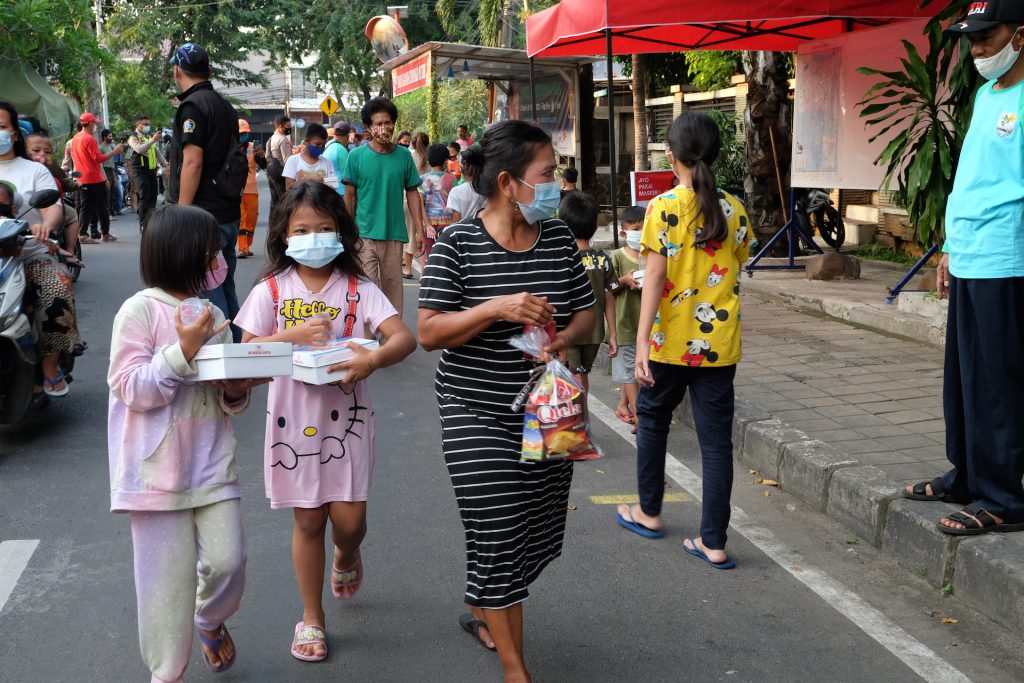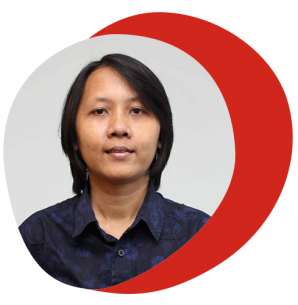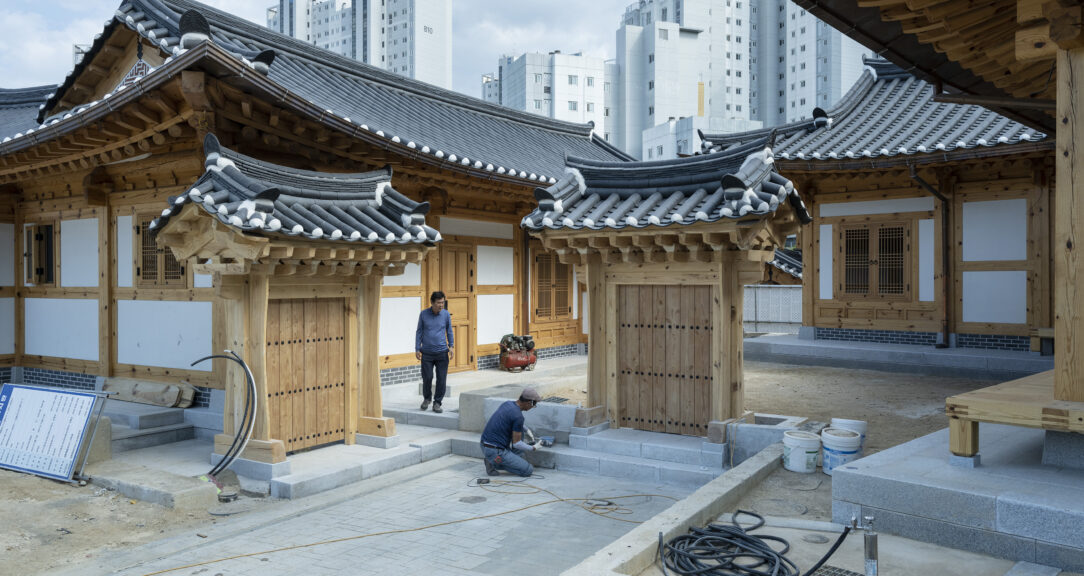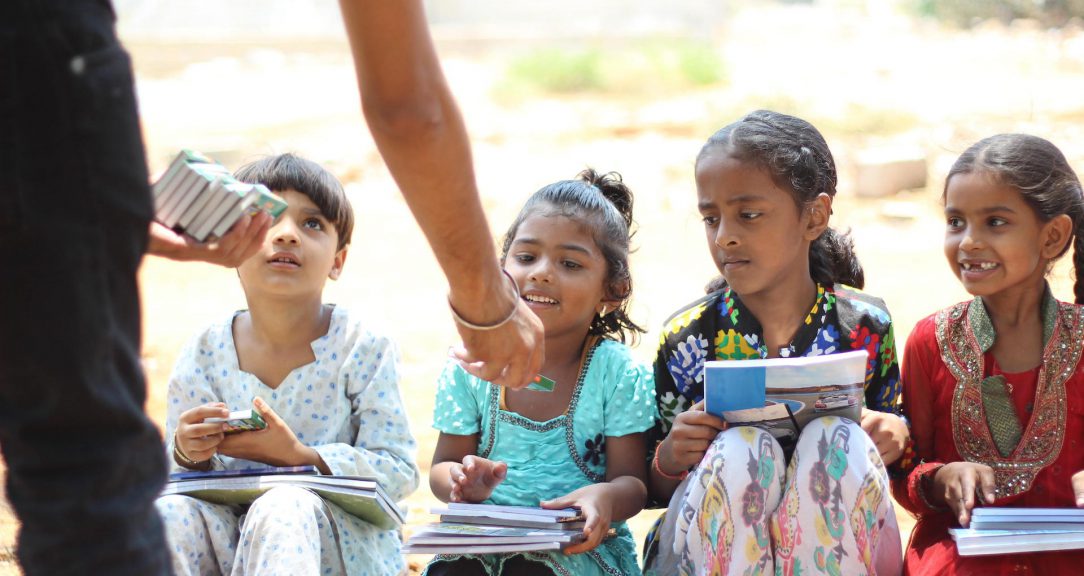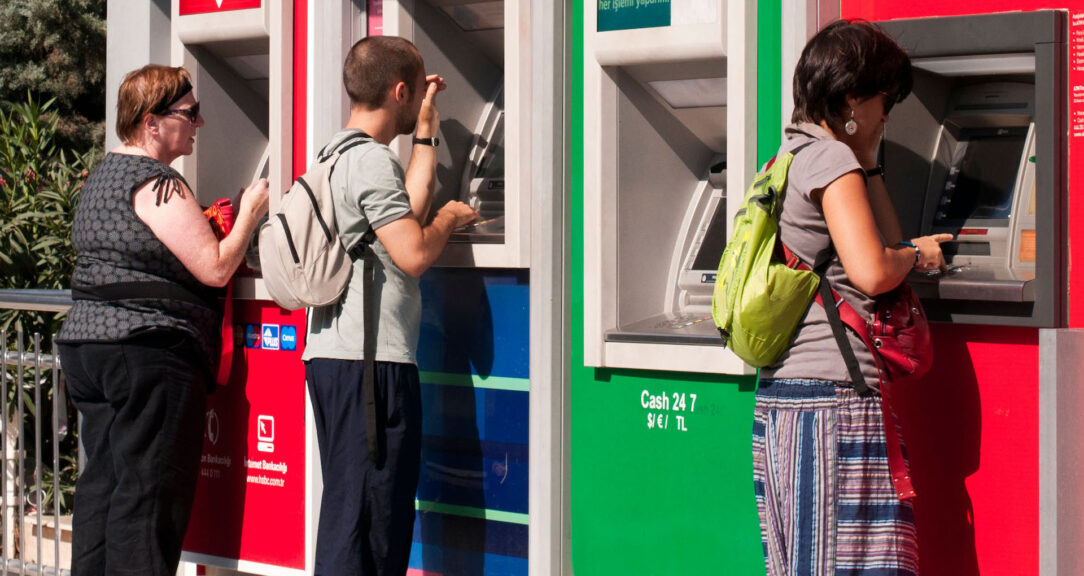With more than 270 million residents, Indonesia is the fourth most populous country in the world. With 85% of its population adhering to Islam, it’s also the largest Muslim-majority country in the world.
Accordingly to the 2019 CAF World Giving Index, Indonesia ranks among the top 10 countries globally in terms of charitable giving, with a big increase in the past decade. The rising salaries of the growing middle class have also led to increased zakat giving, based on the Islamic principle of giving part of your income or wealth to the needy. Indonesia’s government has promoted zakat as a way to achieve the U.N. Sustainable Development Goals of reducing poverty and hunger.
The World Bank reclassified Indonesia as an upper middle-income country in 2020, a reflection of its rising global status. This April we took to the streets of Jakarta to see what charitable giving looks like during the month of Ramadan in the second year of the pandemic.
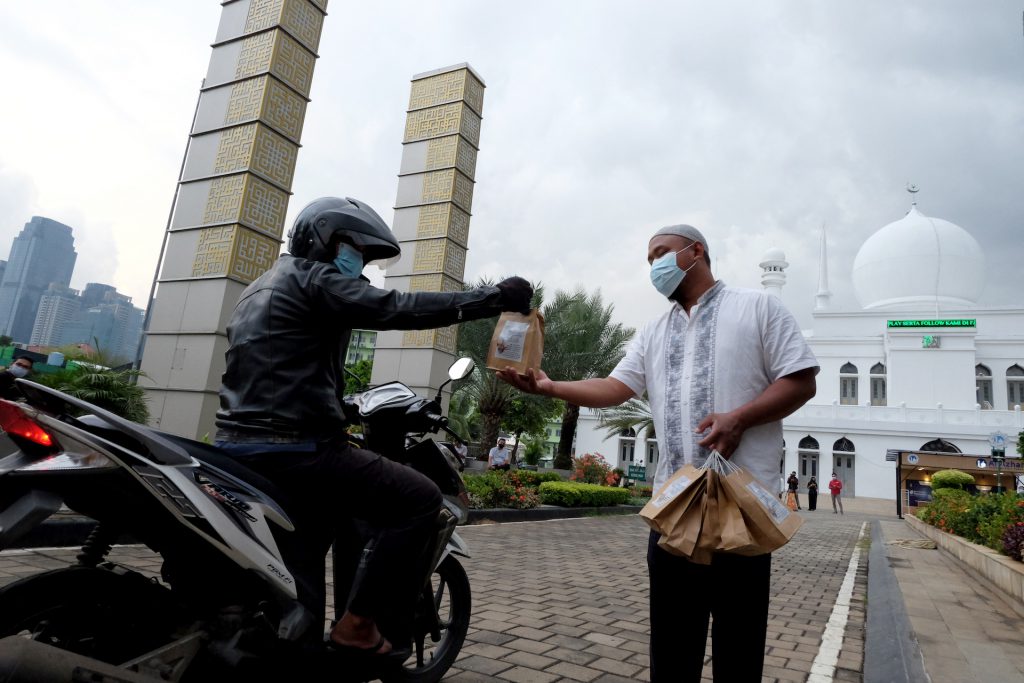
Many Muslims fast during each day of Ramadan, only eating food or drinking after the sun sets, at a meal called iftar. Normally, food is distributed in the mosque, but because of Covid-19, iftar meals are outdoors only. Members of the Al Azhar Mosque hand out iftar meals donated by congregants to motorcyclists passing by in South Jakarta. The Al Azhar Mosque committee gives out 150 iftar meal packages every day during Ramadan.
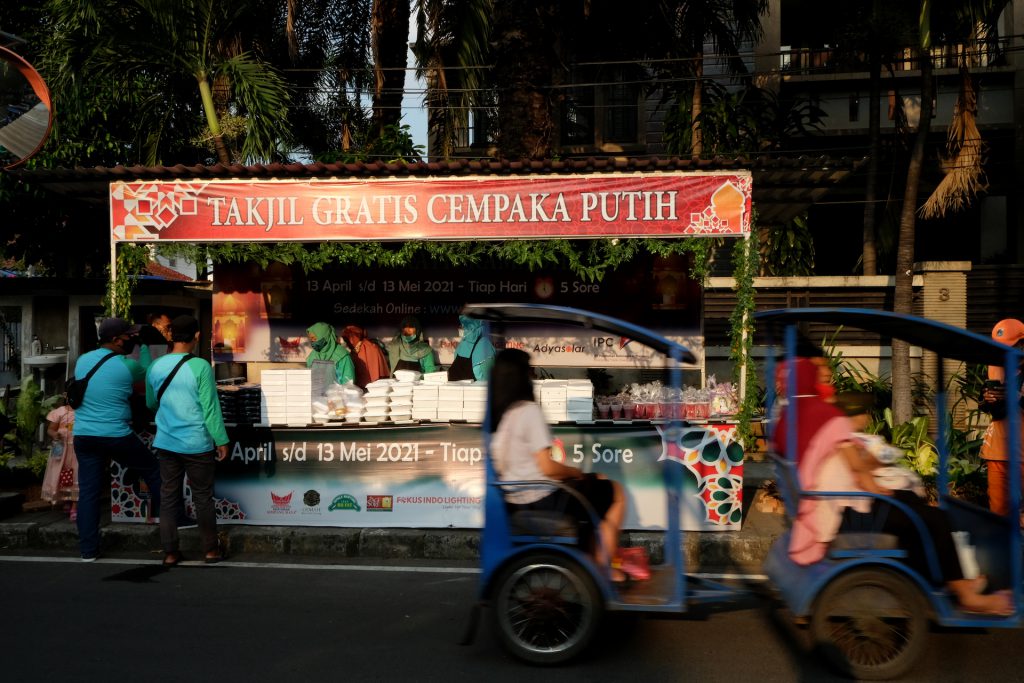
Volunteers prepare iftar meals in the Cempaka Putih district of Central Jakarta. The neighborhood Ramadan committee provides 500 to 600 iftar meals every day. Volunteering is an important part of the local culture: Indonesia boasts the highest levels of civic and social engagement of any country in the world, according to the Legatum Institute’s 2020 Prosperity Index report.
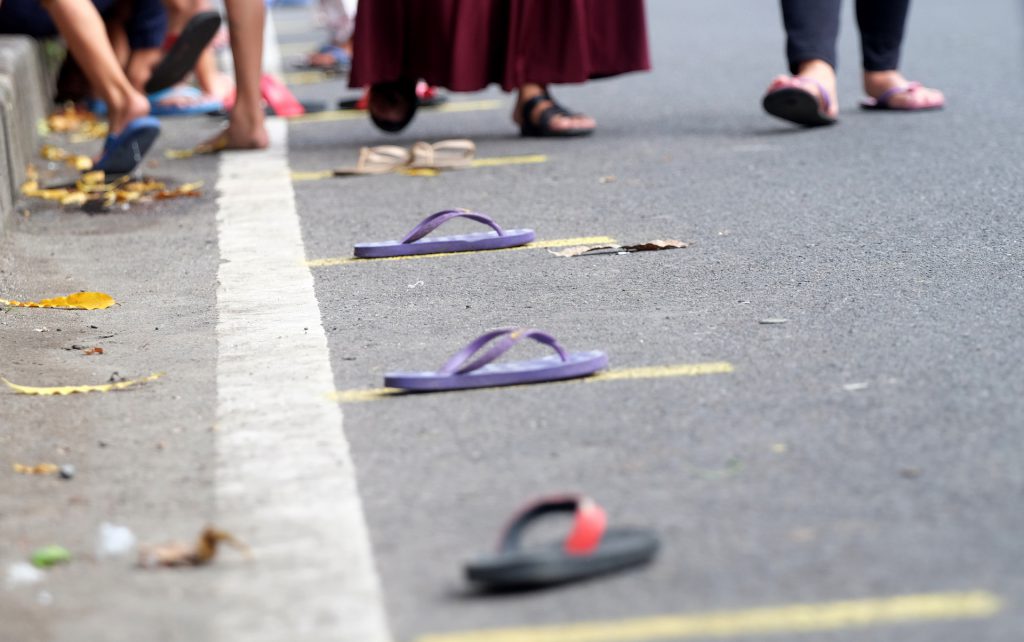
Residents of Cempaka Putih in Central Jakarta put their sandals in the queue for the iftar meals while waiting nearby. The meals vary every day, but popular dishes include noodles or Padang rice. Indonesia’s zakat oversight institution, BAZNAS, reported that zakat collected by registered nonprofits grew from about 8 trillion Indonesian rupiahs ($560 million) in 2018 to IDR 10.2 trillion in 2019.
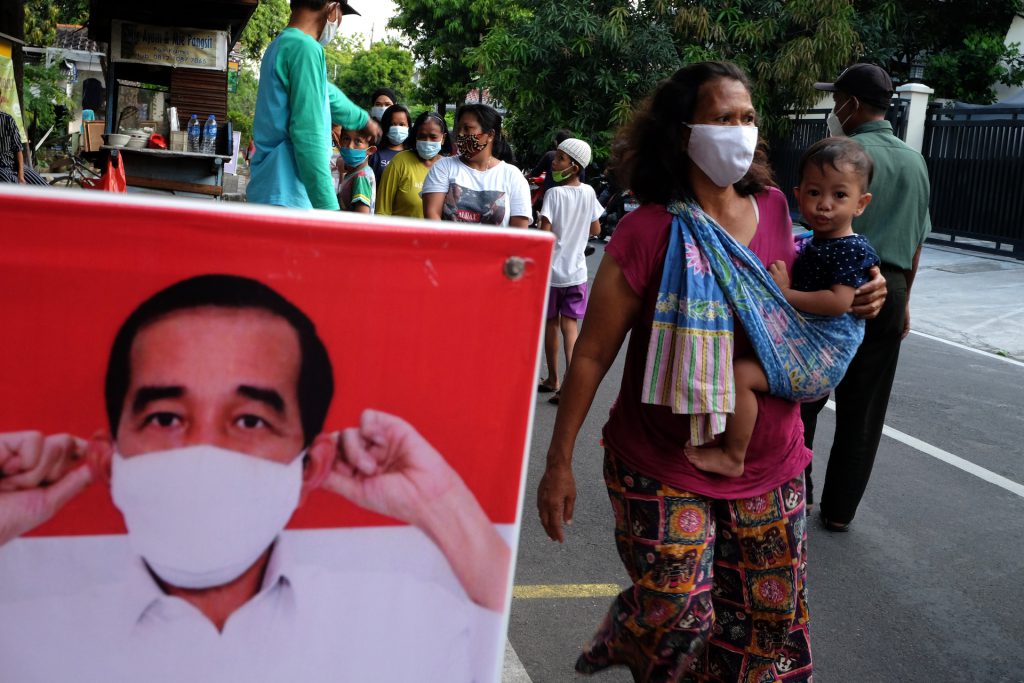
Social distancing rules are in effect to prevent the spread of Covid-19 in Jakarta. The iftar meals distributed by the Cempaka Putih Tengah XX Ramadan committee are donated by residents and seven local companies. Filantropi Indonesia has found that fundraising during the pandemic has shifted from mass media fund drives to focus more on social media, crowdfunding and influencer campaigns. During the pandemic, the average value of digital donations increased by 72%.
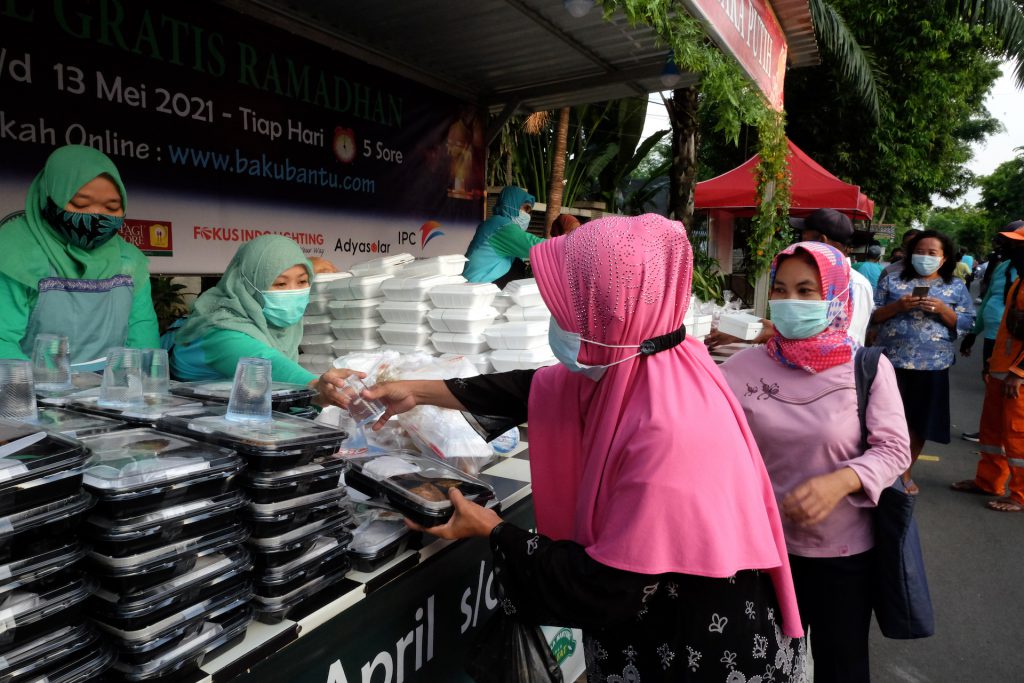
The iftar meals provided by the Cempaka Putih Tengah XX Ramadan committee are individually packaged to prevent the spread of Covid-19. During the pandemic, Indonesian millennials were frequent givers, making smaller donations but in larger quantities than any other generation.
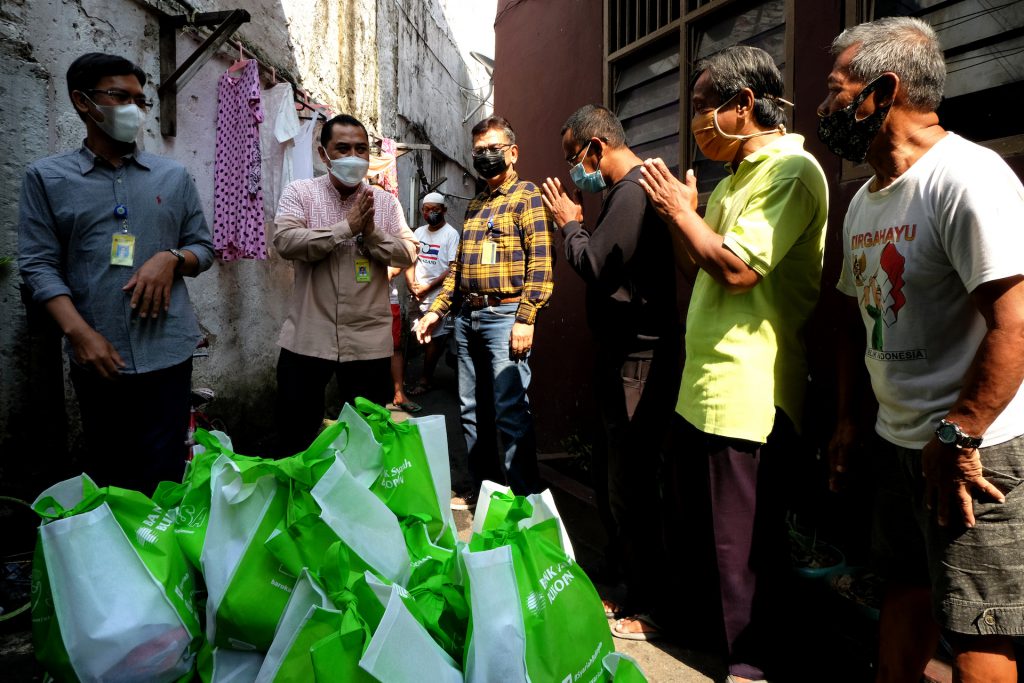
Bank Syariah Bukopin donated Ramadan food packages to elderly and poor residents of the Paseban neighborhood in Central Jakarta, as well as school supplies to orphans. The pandemic paused Indonesia’s steady economic growth and wiped out years of progress in poverty reduction, the World Bank reported.
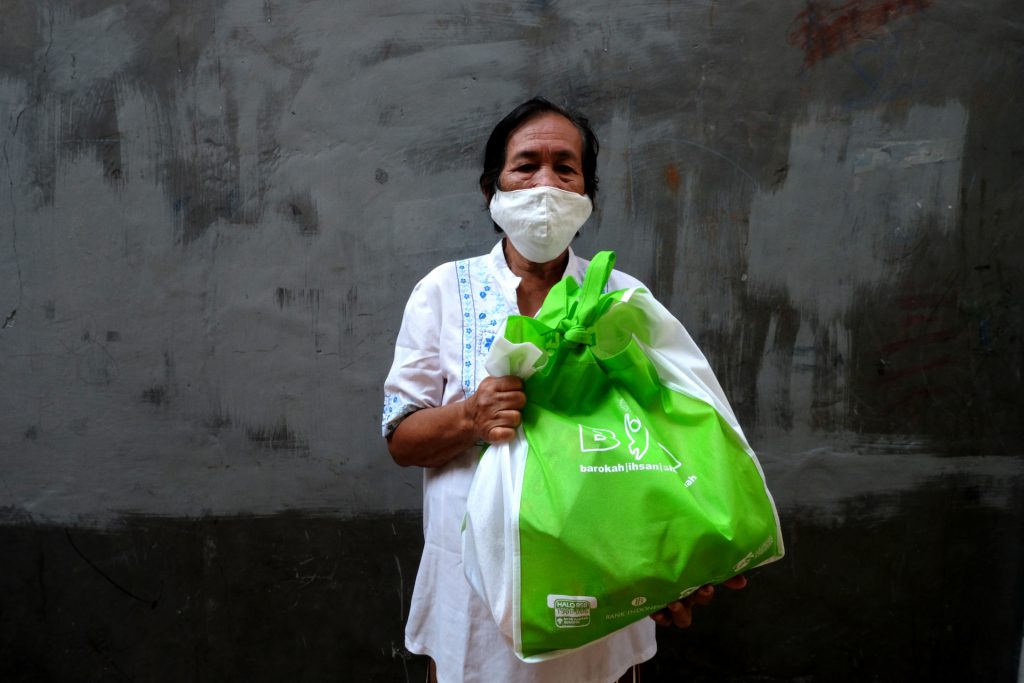
A care package recipient in Paseban in Central Jakarta. The food packages from Bank Syariah Bukopin include rice, sugar, coffee and tea. According to the Centre for Asian Philanthropy and Society, since the Indonesian government embraced decentralization policies in 2001, the number of registered nonprofits has boomed from about 1,600 in 2000 to more than 406,600 in 2019.
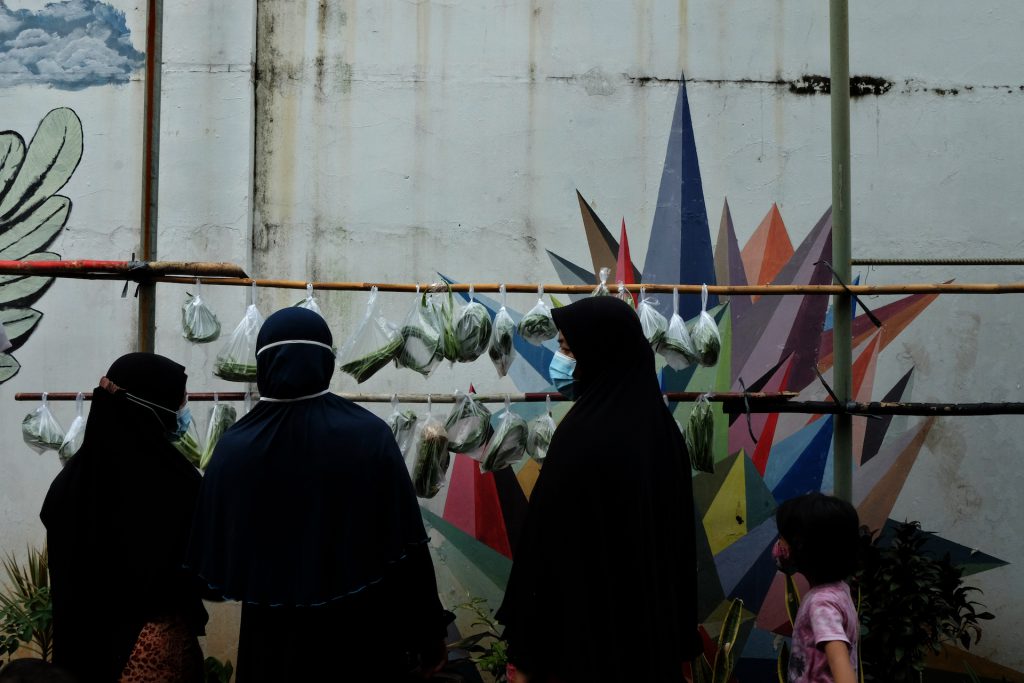
Residents pick up free vegetables in South Jakarta. The free bazaar was organized by Jati Padang residents as an act of solidarity with other residents affected by the pandemic. In the past 15 years, Indonesia’s middle class has grown from 7% to 20% of the population, according to the World Bank.
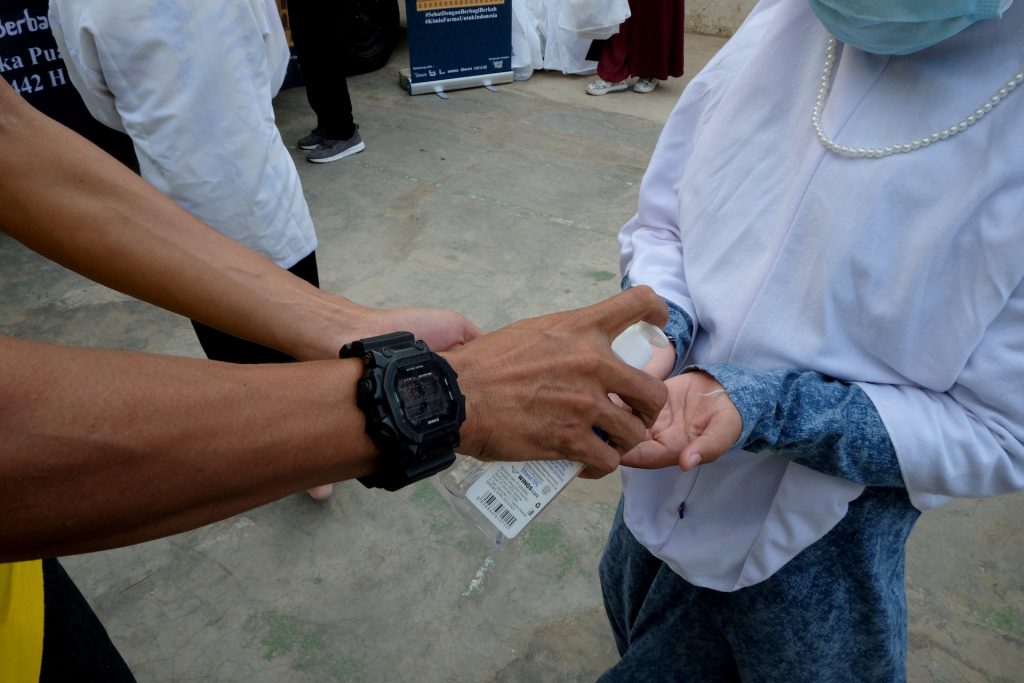
A volunteer sprays disinfectant on the hands of an Islamic boarding school student in South Tangerang before the iftar meal. Indonesia has had about 1.9 million cases of Covid-19 and 52,000 deaths during the pandemic as of June 2021.
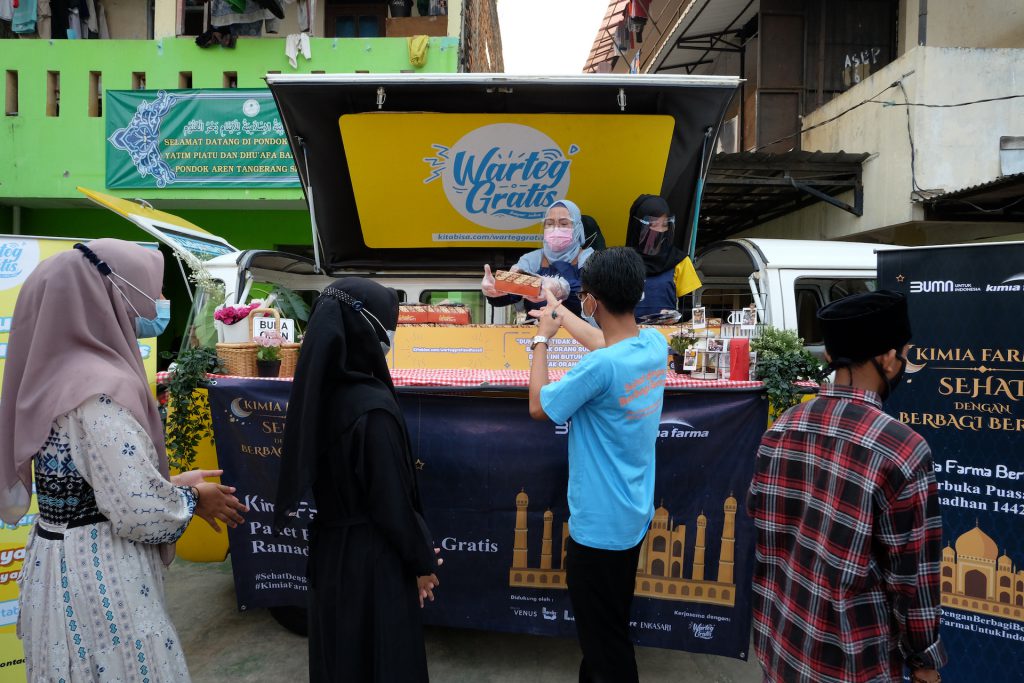
Community volunteers dish out iftar meals to students. The name Warteg Gratis comes from local slang for a food stall serving Javanese specialties. This particular program is a regular Ramadan event supported by pharmaceutical company Kimia Farma.
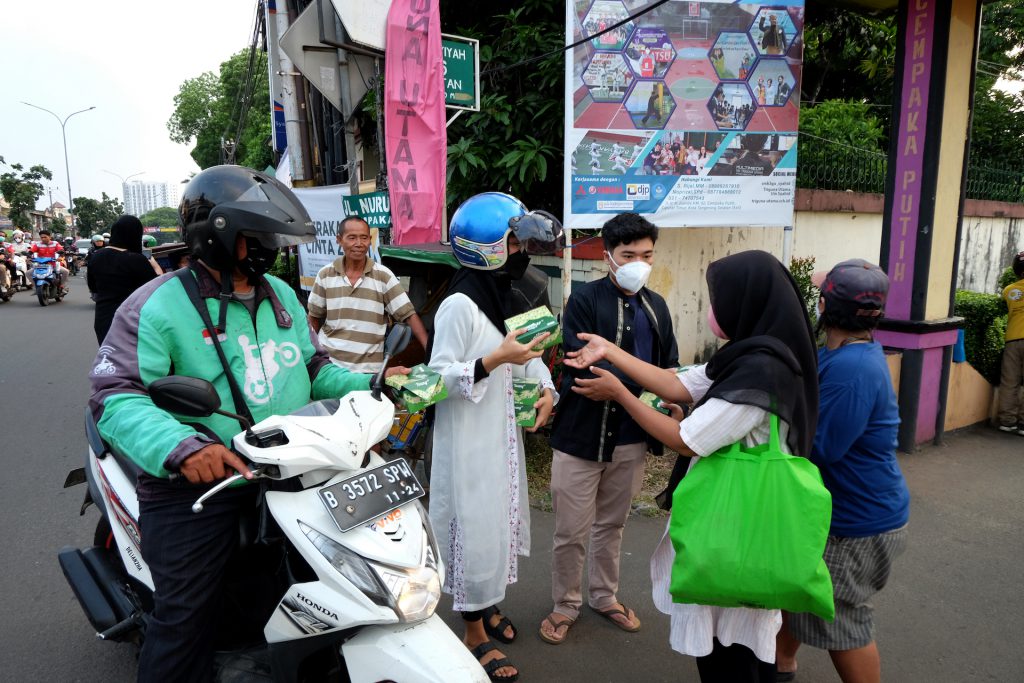
In addition to corporate and community food events, many individuals in Indonesia distribute food during Ramadan just for the joy of giving. Here, a woman hands out iftar meals to passers-by on a major road in South Jakarta City. The aspiring middle class — estimated at 45% of the population, or 115 million people — was particularly at risk during the pandemic, per the World Bank. Not poor but not yet financially secure and often relying on informal work, this group wasn’t eligible for many pandemic relief measures.
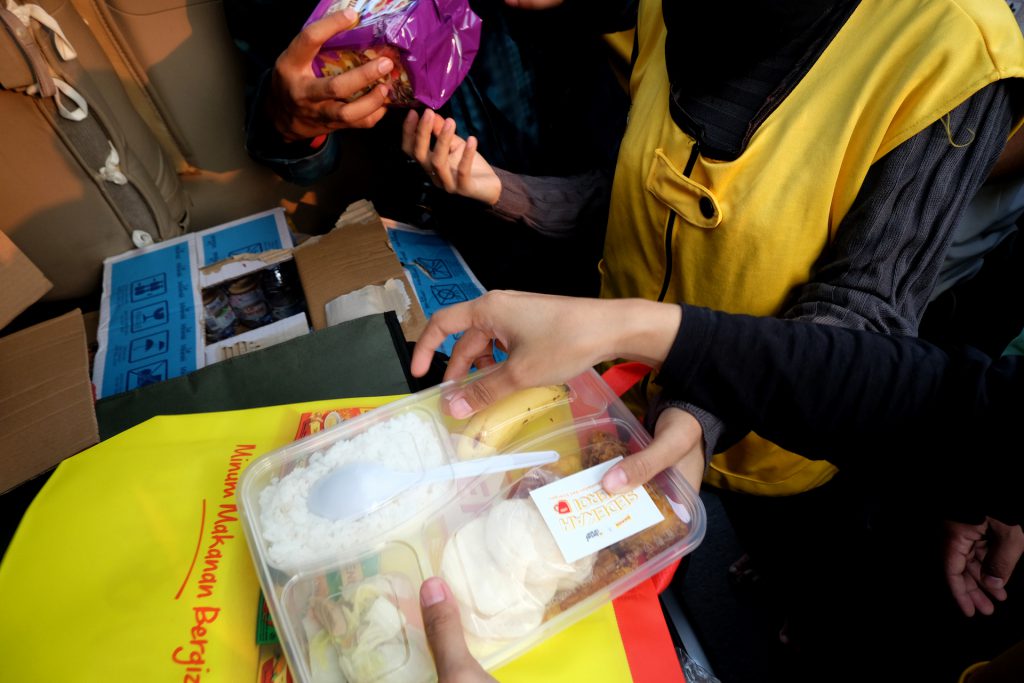
Volunteers with the nonprofit Berbagi Sarapan (Indonesian for “sharing breakfast”) prepare iftar meal packages that will be given to delivery, pedicab and motorcycle drivers passing by on Jl. Ciputat Raya, a major road in South Tangerang. The World Bank estimates that only 21% of jobs in Indonesia can be done from home.
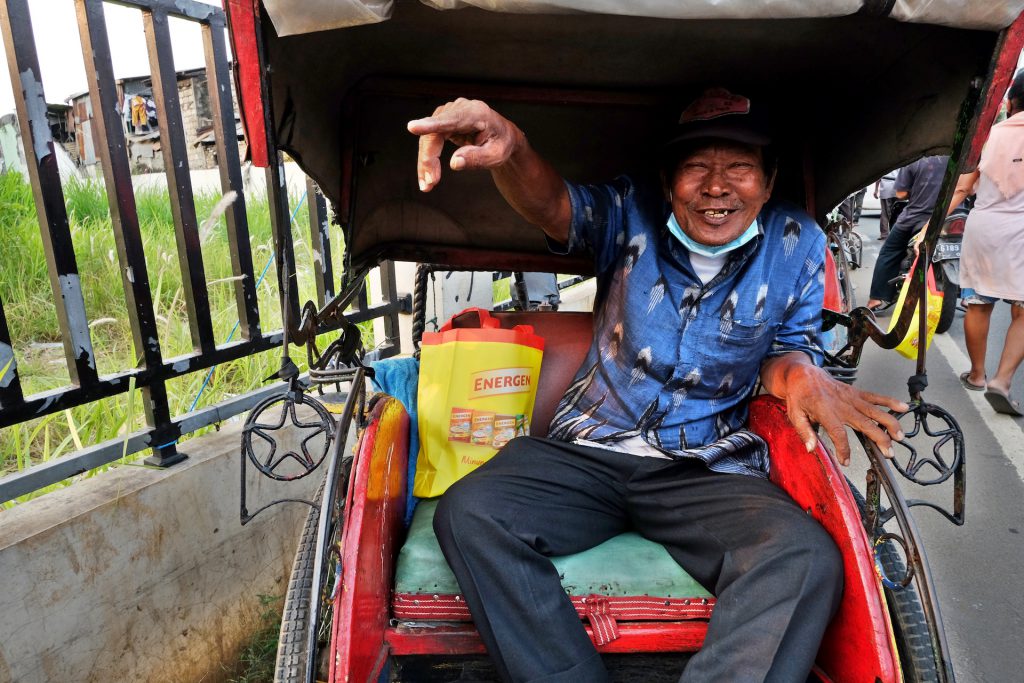
The transportation sector was hard hit by travel restrictions during the pandemic. This pedicab driver has got his iftar meal package from Berbagi Sarapan in South Tangerang and is ready to get back on the road.
Read more
Sign up to keep up to date with ReThink Q.
